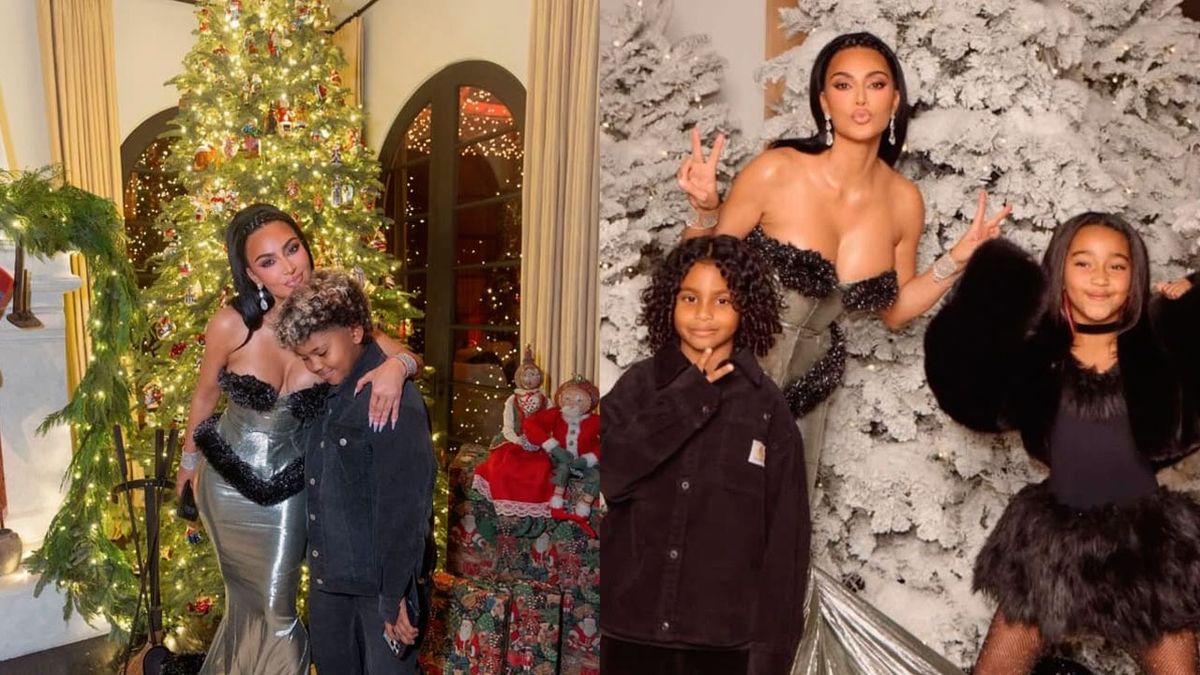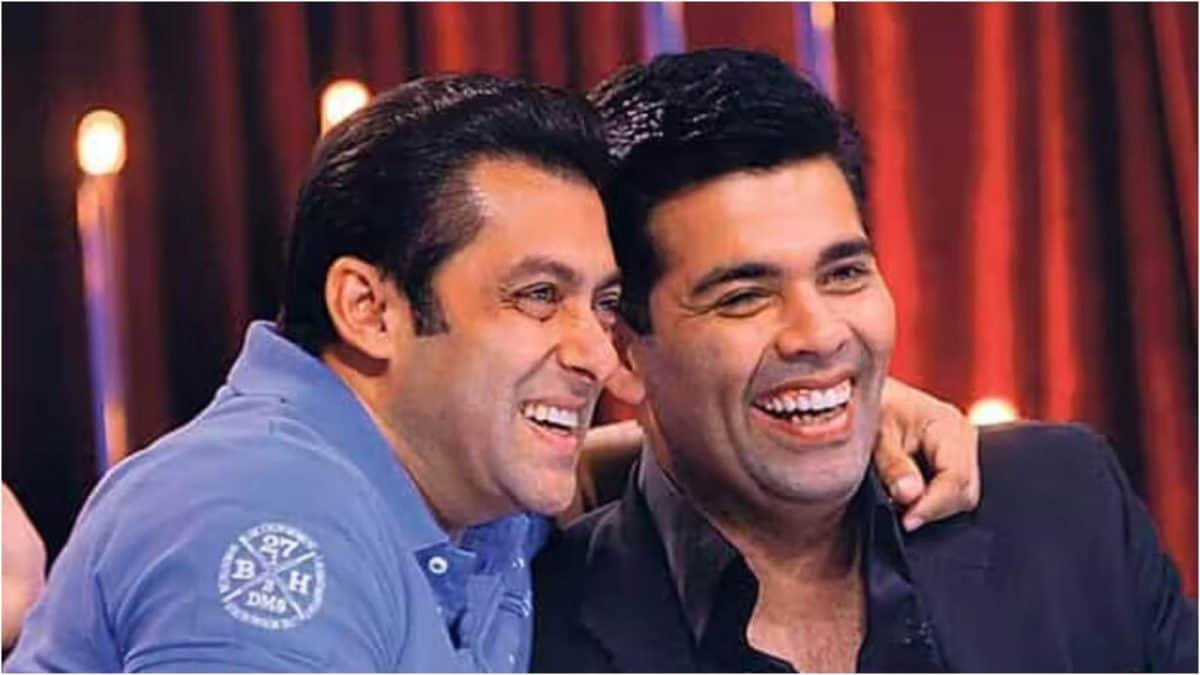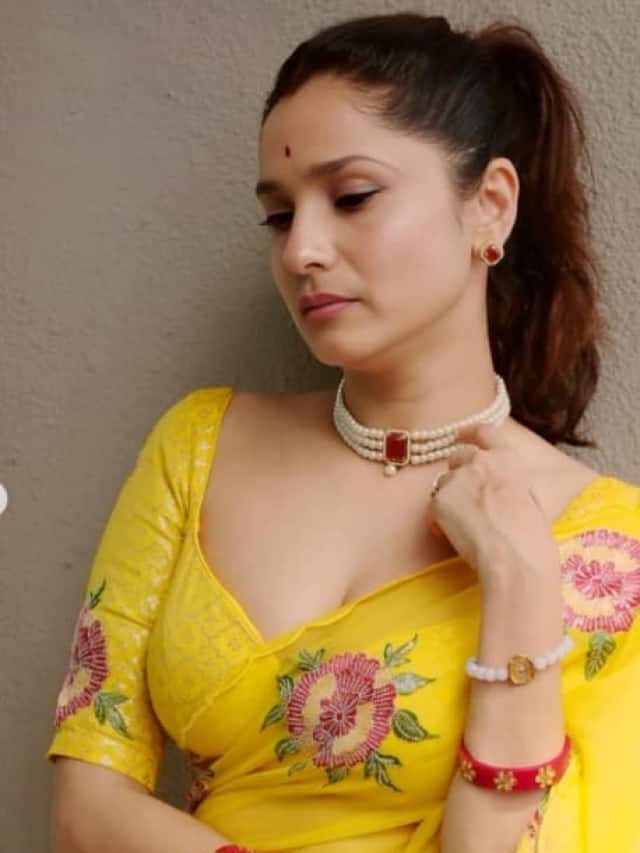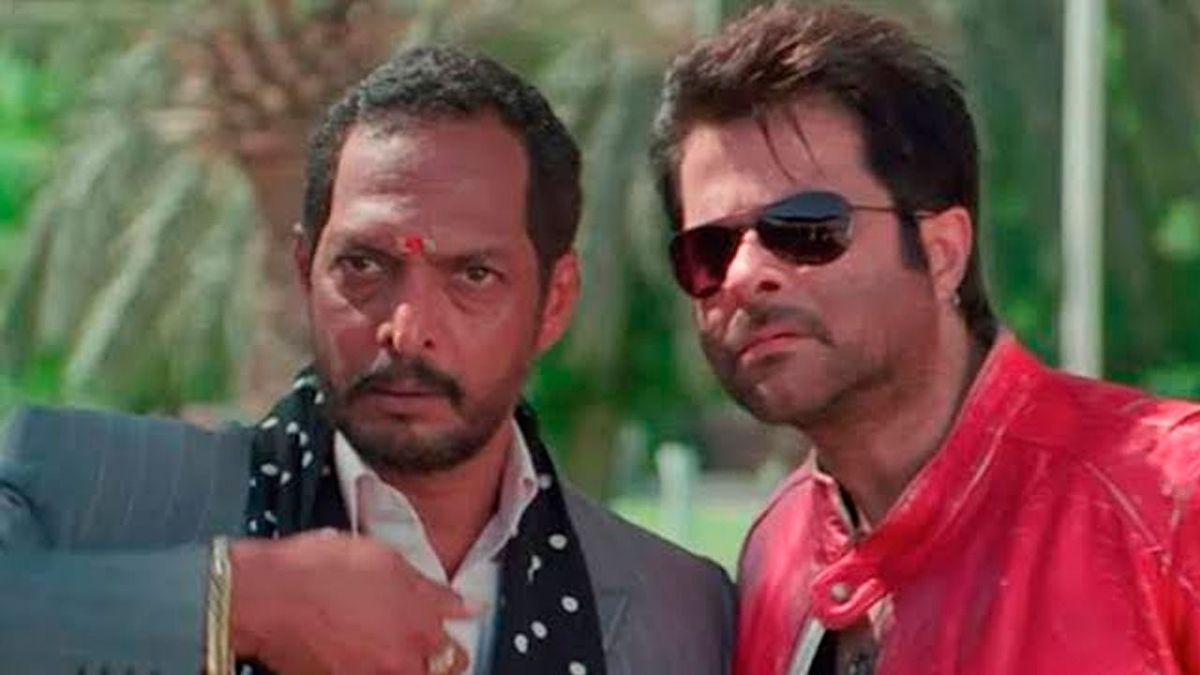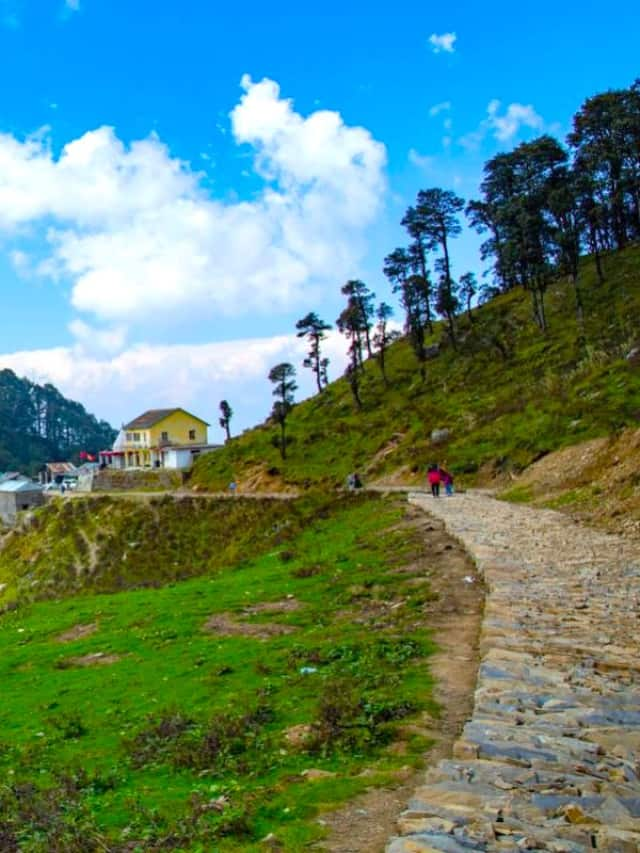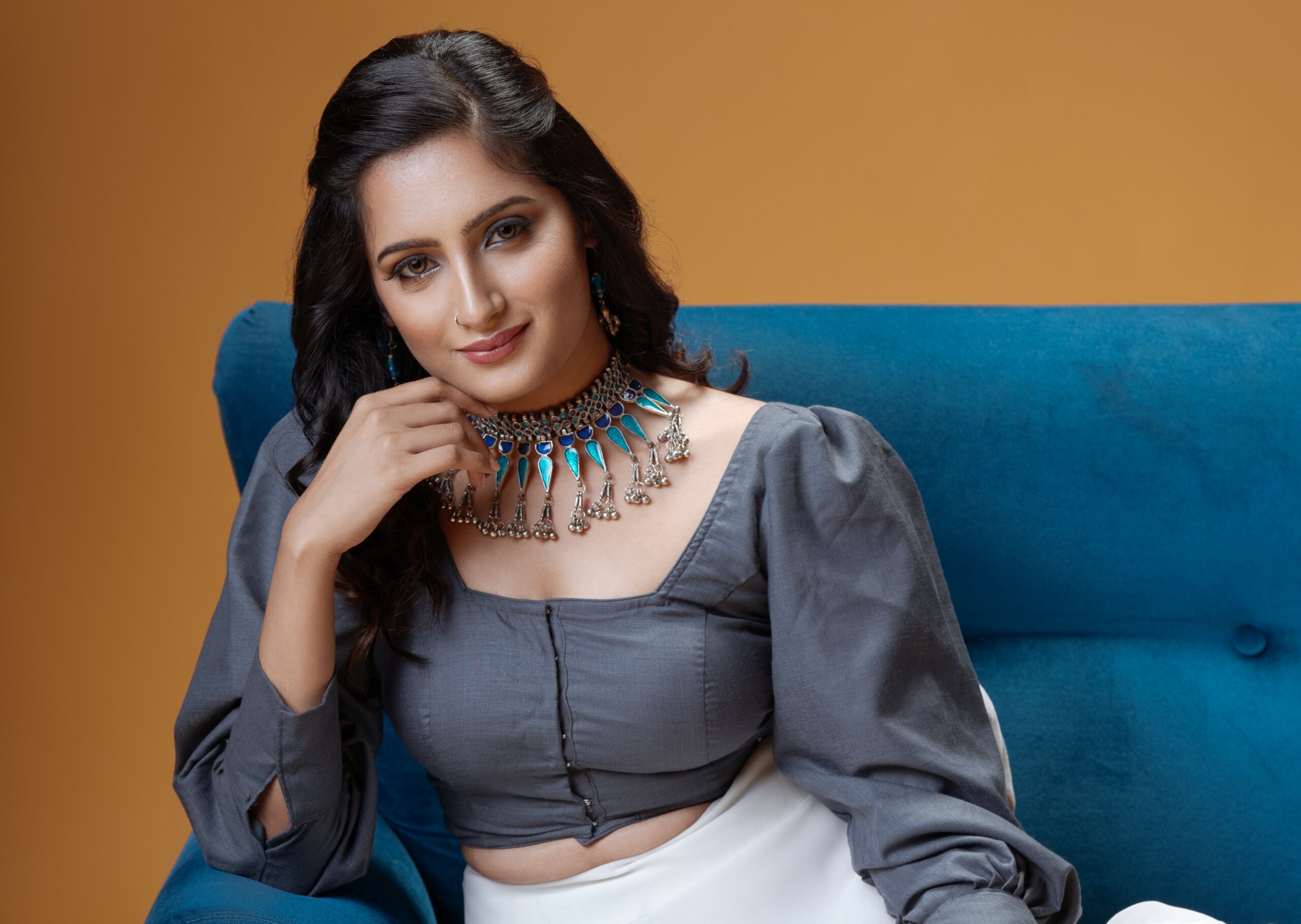
“Traditional music should be brought to the forefront” – Madhubanti Bagchi
Till two decades ago, a handful of voices ruled the Hindi film music space. Now, every other film mars the arrival of a new singer. Despite so many vocalists being around today, there are some who have left an indelible mark with their distinctive voice and by bringing a sense of freshness to the songs they have rendered. Madhubanti Bagchi is one such singer. Her voice has a curious blend of old-world charm and modernity. Being a classically trained singer, Madhubanti glides through songs of different genres smoothly. From classical melodies to dance numbers, she does complete justice to every song she sings.
Madhubanti recently lent her voice to ‘Nazariya Ki Maari’, a semi-classical number from the Netflix original series ‘Heeramandi’ created by Sanjay Leela Bhansali. The song climbed up the popularity charts in very little time, serving as yet another testimony to the fact that people continue to look forward to songs with a traditional Indian sound, which have become rarer with time. Madhubanti also sung ‘Ek Kahaani’, a dulcet melody from ‘Panchayat’, one of the most successful shows on the streaming space, the third season of which dropped last month. ‘Aaj Ki Raat’ from ‘Stree 2’, which she has lent her voice to, has emerged as the latest chartbuster.
In this interview, Madhubanti talks about her latest hits, her journey in music, giving up a career as a mechanical engineer, collaborating with Sanjay Leela Bhansali, the stories behind some of her popular songs and more.
You have collaborated with Sachin-Jigar on several songs in the past. How was the experience of collaborating with them on ‘Aaj Ki Raat’ from ‘Stree 2’?
‘Aaj Ki Raat’ is a special song because it is a part of ‘Stree 2’, which has been one of the most anticipated films of the year. Sachin – Jigar had faith in my voice from day one. That’s why I have been able to collaborate with them on a bunch of songs. They were very sure that this song would be the perfect fit for my voice and kept pushing me till I could give my best. I would also like to mention Amitabh Bhattacharya for his incredible lyrics. The pointers he gave me came in really useful while delivering the song.
‘Nazariya Ki Maari’ (‘Heeramandi’) marks your second collaboration with Sanjay Leela Bhansali after ‘Siva Tere’, a ghazal from the non-film album ‘Sukoon’ which he had composed the music for.
Yes, that’s right! The experience of working with him is different from other composers I have worked with. Mr. Bhansali looks into every aspect of a song in detail. Apart from being mindful of the lyrics and arrangements that are being used, he is very sure about the kind of harkat and murki he wants in a song. He is extremely specific about everything. If you perform as per his expectations, he will praise you. Initially, it could be intimidating to work with somebody who looks for perfection in everything. However, he is a wonderful person to work with. He treats you with a lot of respect and love.
‘Ek Kahani’, which one heard recently in the third season of ‘Panchayat’, has a very nice laidback and haunting feel to it.
I have had the good fortune of working with composers who have extremely different styles. Anurag (Saikia) has been a friend, so I can sit with him and have elaborate discussions on the track. If I don’t like something about a track we are working on, I can ask him to tweak it. I can discuss the musicality or zone in which we can take the song in. While working on this particular track, we have had a lot of discussions on the production or the arrangement. In the second season of the show, there was a song called ‘Safed Kash’. ‘Ek Kahani’ could be described as an alternative version of the track which is from a female perspective. It had to be sung differently from the original version as the arrangement is completely different. It is quite abstract in nature. In the series, it is shown as a love sequence between Sachiv ji (Jitendra Kumar) and Rinki (Sanvikaa). If you listen to the lyrics carefully, you realize they are quite abstract. They are talking about the turmoil going on in the lives of different individuals in the village. Somebody is trying to get out of loneliness, somebody is trying to understand internal politics, somebody is falling in love. In the song, all these things come together and they encompass life in general. I had to sit with Anurag quite a few times to understand how to sing the song as it has so many different angles.
‘Dhanno’ from the film ‘Good Morning Sunshine’ also released recently. This is the first time you have collaborated with M. M Kreem.
Yes! Actually, this song happened a long time back. I am glad the album has finally released. I recorded it way back in 2017. That was the first time I met M. M. Kreem sir. At that time, I was not even living in Mumbai. I travelled to Hyderabad to record my vocals for the song.
In the last few years, many new trends have emerged in music. Lo-Fi is one of them. In ‘Najariya’ (‘Article 370’), your voice was processed in a particular way. One only got to hear the Lo-Fi version on the album. What are your thoughts on such trends?
All this boils down to the composer’s perspective. Many a time, the situation in a film or show dictates the kind of song or sound that is required. ‘Heeramandi’ is a period drama. In a show like that, you want to be authentic to the time you are representing. You do not have to modernize any song there. ‘Najariya Ki Maari’ is an out-and-out thumri. I asked Sanjay sir what kind of tone he wanted for the track. I sung it in a heavy tone, the way classical musicians used to do. ‘Ek Kahani’ has a softer tone. He told me I should sing it exactly the way it is supposed to be sung. The arrangements is traditional. It has sitar, tabla, harmonium, ghunghroo and percussions. It was presented the way such songs were done during those times. When you make a contemporary song, the approach is different. I released a track called ‘Nadiya Bhari Bhai’ independently. Though it is a thumri, it features electronic arrangements. Based on the song I am singing, the delivery or style of rendition changes.
As far as ‘Najariya’ from ‘Article 370’ is concerned, I was not sure as to how Shashwat will present it. He wanted to do a pop version of the song as well, which I had to sing separately. We recorded the track in a traditional manner with my voice and a tanpura and tabla playing alongside. It was live recording. We recoded everything together. Owing to the way we recorded there were lot of ‘leakages’ and one could hear some breathing sounds as well. It was not pristine, clear-cut recording. I guess he decided to play around with it and give it a LoFi spin.
You grew up in Kolkata and trained extensively in Indian classical music. You have a degree in mechanical engineering. When did you decide to pursue music professionally?
I trained in Indian classical music for twenty-two years. While I was learning, I was heavily into rock and heavy metal. I still am. I listen to that kind of music frequently. A lot of influences were coming in when I was finishing up my engineering studies. I also did my masters in engineering. While doing my masters, I realized I was not cut out for a 9-5 life. I thought I should put in a lot more effort in figuring out if music was a viable option for me. I had never given it a thought. I had learnt because I liked it. It is not easy to take up a career in music just like that. I knew nobody in the industry. I was inherently not willing to participate in a reality show. I think reality shows compare artists in an unfair manner. For some time, I did not have a clear idea of how to get into music. I thought of doing my masters and believed I will eventually figure out something. I appeared for my entrance exams and got into a good university. I had started getting calls for auditions from composers in Kolkata. I managed to crack those auditions and that’s how my journey as a playback singer started. I even started performing in shows. You have to prove to your family that you can make a living out of it. Once I started getting work regularly and things started to feel secure, I decided to take the plunge. I knew taking up a job would lead to secure money. However, security makes you a little lazy. I didn’t want to do a job, so I had to convince my family that it is okay to take up music professionally.
When did you decide to move to Mumbai?
That transition was almost like a mood swing. I worked in Kolkata between 2014 and 2017. It was going pretty well. I had a few hit songs. If I had to do a concert there, I could perform my original songs for two hours. However, I wanted to do something more. I wanted to broaden my horizon and collaborate with other artists. When you collaborate with somebody, you get fresh perspectives on music. Most playback singers wish to sing for Bollywood films. I didn’t mind being a Bollywood singer but my goal was to meet and collaborate with musicians who could help me improve my musical capabilities. I didn’t come to Mumbai for a project. I just randomly moved one day. One fine day, I decided I had to move to Mumbai. I had a couple of friends in the city who were not connected to the industry. They worked in the corporate sector. I stayed at their place for a few days and in some time, figured out a place to stay for myself.
‘Bhool Ja’ was the first single you released independently. In the last few years, you have released a lot of original music on your own. Is there a higher degree of creative satisfaction involved in making and releasing music independently?
Absolutely! When you are making music independently, there is nobody around to tell you how to do things. Nobody will tell you that this will work and this will not work. If you are completely prepare to embrace failure, you become truly free to express what you are feeling. When people work on films or commercial projects, there is always some back calculation happening. They try to figure out what will work for the audience and make songs accordingly. I don’t think this is the right approach. Art has never been made like that. We have to create something we feel satisfied with. That is why independent music is so gratifying. When I made ‘Ruko Na’, I knew that it will not feature on everybody’s playlist. However, it was the kind of song that, I knew, would appeal to those who had a taste for that kind of music.
You were a part of Coke Studio Bangla. ‘Dokhini Hawa’, the song you rendered, became immensely popular.
I think ‘Dokhini Hawa’ was the biggest song of that season. Because of some copyright issue with the label, the song had to be pulled down from the YouTube channel of Coke Studio. The label, then, re-uploaded the song. Because of that, the views got a little fragmented. Every now and then, the song trends on social media. It became hugely popular as soon as it came out. Collaborating with the Coke Studio Bangla team was an extremely liberating experience. It was interesting to go to Bangladesh and see their perspective on music. Most of their work is still independent. After doing Coke Studio Bangla in 2022, I started taking my independent music score seriously.
What are you doing next?
I plan to release a bunch of songs this year. Many of those would be my own compositions. Some of the tracks would feature a mix of electronic dance music and folk classical elements. When your creative instincts takes over you, you don’t restrict yourself. The songs will be released over a couple of months. There are some interesting collaborations in the pipeline as well. I have recorded my vocals for a few films but unless the song comes out, you don’t know whether your voice has been retained or not.
On the stories behind some of her songs:
Barbaadiyaan – Shiddat
Sachin – Jigar have always been very kind to me. They are the quintessential Bollywood composers and have done all kinds of songs. Sometimes, singers get stereotyped. However, they have cast me in the most unlikeliest of songs. They have always experimented with my voice. When ‘Barbaadiyaan’ happened, they told me it is a dance song but I do not have to sing it like a typical dance song. They made me do aalaaps towards the end. Certain things come naturally to me as a vocalist. If someone casts me in a semi-classical song, it looks very obvious. I find it exciting when somebody casts me against the type.
Bachpan Ki Galiyan – Goldfish
I recorded the song in 2021 when we were still dealing with Covid-19. It is a very well-composed song by Tapas. When he explained the story to me, the director was also there. The brief was to keep it as authentic as possible. He wanted me to sing it like a semi-classical song. He asked me to be as pure in my rendition as possible, without Bollywood-ising any part of it. This is the song which the protagonist sings in her childhood and young age. She is suffering from dementia and forgets everything except for this song. She keeps humming it throughout the film. Since she is a classical artist, the rendition had to be authentic.
Ab Ke Saawan – Ab Ke Saawan
The song marked the beginning of my association with Sachin – Jigar. I remember it was supposed to be a part of a Gujarati film. Sachin (Sanghvi) sir had played the song to me. Eventually, the song didn’t make the cut and was not used in the film. During lockdown, Sachin sir called me and said, “Madhu, we should do the song.” I remembered the song faintly. He had re-composed it and it sounded amazing. He had turned it into a duet and was looking for a male singer. Initially, it was a Gujarati song. It was their passion project. They wanted to do good music. The music video featured Prateik (Gandhi) and Esha (Kansara). After ‘Scam 1992’, Prateik was getting a lot of attention. Esha is a dear friend. I had no idea they were doing a video. Since Covid was still there, not many people were allowed to be on the shoot. They got a bungalow in Versova. Bhargava Purohit directed the video. The way they put everything together showed me that if you believe in something and do it honestly, it touches a lot of people. There is a notion that classical music does not reach out to a lot of people. That’s not true. We might explore different types of music but Indian music and folk music is truly ours. You can never really detach yourself from it. So many people have resonated with the music of ‘Heeramandi’. The popularity of those songs proved that there is a lot of interest in traditional music which is being overlooked by creators. It should be brought to the forefront and not restricted to a few connoisseurs of music.
Jhand Ba – Good Luck Jerry
This was a very unique experience. It was the first time I worked with Parag. He is a gifted composer, singer and music producer. Parag is very specific about everything. He almost tells you which frequency to sing the song in. Raj (Shekhar) bhaiya had written the song very well. Parag wanted it to have a retro feel but quirky at the same time. It is an extremely fun song to listen to. I feel it did not get as much attention as it should have. Had it been promoted properly, it would reach out to a larger number of people.
Ek Boond – Doctor G
Amit (Trivedi) sir is a thorough gentleman. The first song I recorded for him was ‘Aami Jaani Re’ from ‘Mrs. Chatterjee VS Norway’. When I went to do some patch work on that song, he asked me to try out this song. I think it shaped up very well.
Publisher: Source link
